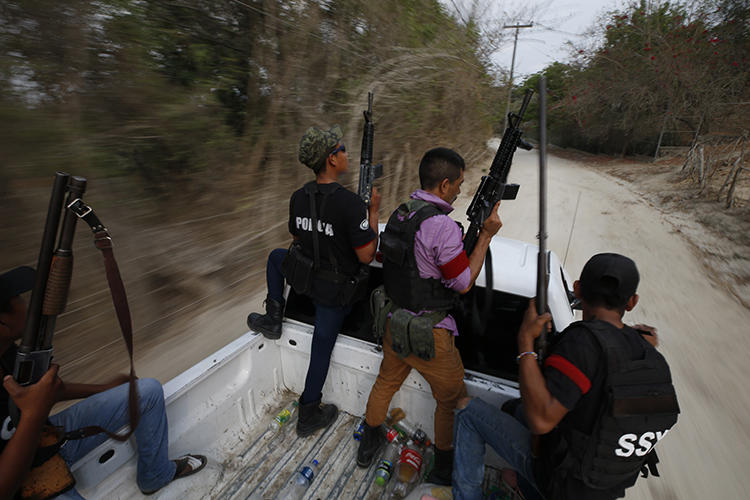Mexico City, April 16, 2020 — Mexican authorities must ensure the safety of reporter Ezequiel Flores and investigate the threats made against him, the Committee to Protect Journalists said today.
On April 13, the Frente Unido de Policías Comunitarias de Guerrero, an armed group active in the southern state of Guerrero, issued a press release on Facebook saying that it had ordered Flores, a correspondent for the investigative weekly Proceso, to be detained and to undergo “re-education in the customs and habits” of the region.
The press release accused Flores of being “coopted” by the Cartel del Sur, a criminal gang operating in the state, and of spreading false information about forced displacement and the arming of minors in the Tierra Caliente region.
The Frente Unido de Policías Comunitarias de Guerrero is a coalition of militias which claim to have taken up arms against drug trafficking gangs, according to its Facebook page. The militias are not recognized by the Mexican federal government or by Guerrero state authorities, according to news reports.
“The idea that an armed group can post on its social media account what amounts to a plan to abduct a reporter shows how far out of control the violence is in Guerrero state,” said Jan-Albert Hootsen, CPJ’s Mexico representative. “Mexican authorities must re-assert control by the elected government, and they can begin by investigating these threats and holding those responsible to account. They must protect Proceso reporter Ezequiel Flores and ensure that the press can report freely and without fear.”
The militia’s press release referred to Flores’ recent reporting on clashes between criminal gangs in the town of Leonardo Bravo, and alleged that he falsely claimed that militia members had moved into the area and had been arming children. Flores told CPJ in a phone interview that he had not made those allegations in his reporting or in posts on his personal social media accounts, and CPJ did not find such allegations in his recent reporting on Proceso’s website or in his live broadcasts on his personal Facebook page.
Over the past three years, Guerrero Governor Héctor Astudillo has repeatedly stated that self-proclaimed community police forces in the state are used as fronts to engage in organized crime, according to news reports.
CPJ messaged the armed group on Facebook, but did not receive any response. CPJ called the Guerrero state prosecutor’s office and Astudillo’s office for comment, but did not receive any responses.
Flores told CPJ that he fears for his life, saying that violence against journalists had increased in Guerrero over the last few years, and that, “The state authorities cannot guarantee the safety of anyone.”
He told CPJ that he contacted the Federal Mechanism for the Protection of Human Rights Defenders and Journalists, which operates under the auspices of the federal Interior Secretariat, to be provided with protective measures. An official with the mechanism, who asked to remain anonymous as they are not authorized to speak publicly on the matter, confirmed to CPJ on April 14 that the mechanism was analyzing Flores’ application for protection.
Flores added that he will report the threats to the Federal Special Prosecutor for Attention to Crimes Committed Against Freedom of Expression.
Flores has been the correspondent in Guerrero for Proceso, one of Mexico’s most widely read investigative news magazines, for 20 years, he told CPJ. He mostly covers corruption, organized crime, and human rights abuses, and has been threatened several times before, according to Flores and CPJ’s review of his reporting.
More than 10,000 people have been murdered in Guerrero since 2015, according to reports.
Mexico is the deadliest country for journalists in the Western Hemisphere. At least five reporters were murdered in direct retaliation for their work in 2019, according to CPJ research. Another six were killed in circumstances that CPJ is still investigating.
In 2012, Proceso’s correspondent in Veracruz, Regina Martínez, was found murdered in Xalapa.
